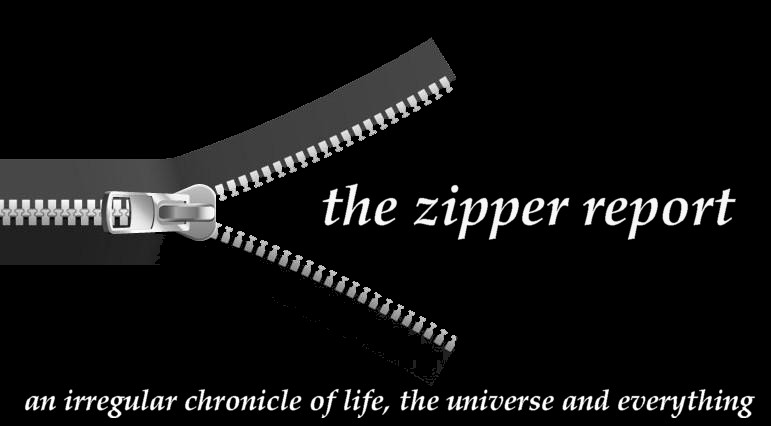This weekend, one of the best-known people in Thunder Bay died.
She wasn't born here. She doesn't live here now. And when she did, it was only for a few months - and most of that, spent in a cell.
But in that short time, Lawrencia "Bambi" Bembenek worked as a waitress, taught aerobics (in the building just across the street) and met and made more friends than some who've lived in the Lakehead all their lives.
This wouldn't be quite so strange if it weren't for the fact that this popular newcomer arrived in the City fresh from a prison break.
A Wisconsin court had convicted Laurie (a Milwaukee police officer) of murdering the ex-wife of her boyfriend (who was also on the Force). Her persistent denials went unheard by all but a few who suspected that a woman with enemies in a predominantly male occupation might well have been framed.
In any case, at some point, the imprisoned Bembeneck decided not to wait for appeals to run their course, teamed up with the brother of another inmate, effected her escape and split for Canada.
And for a brief and blissful span thereafter, the couple enjoyed the peace and contentment of life on Banning Street.
Then, one dark day, as Nature showed its disapproval with simultaneous snow and thunder, Dudley Do-Right (acting on a tip from an avid viewer of AMERICA'S MOST WANTED) showed up on their doorstep, identified and arrested them and left a lot of locals scratching their heads.
Now, it would have been impossible for an old tabloid "reporter" like me to stay out of a story like that. But I told myself that the writing course I was giving at the community college and some freelance work I was doing for CBC was more than enough and that I should leave this one to the professionals.
What I'd forgotten was: that's not the way it works. Stories chase writers - not the other way 'round!
So, it shouldn't have surprised me when (next day) I was chatting with a waitress in my favourite cafe and she happened to mention that she'd known Bambi.
I'd just been telling her that Bambi had served me coffee once. But I had to admit the only thought that ran through my head at the time was: "Hey! Louis is hiring prettier help."
My waitress chuckled.
She and her boyfriend, she told me, used to meet Bembeneck and hers at local donut shops. They'd have a coffee and chat, then get back in their cars and play a mobile CB-radio game of hide-and-seek called "Cat And Mouse".
"Laurie always wanted to be Mouse," the waitress recalled.
She sighed, shook her head and started to walk away, when something prompted me to stop her and ask, "Oh, by the way, what was Lauri's CB 'handle'?"
The waitress looked at me as if I were thick as a brick.
"Bambi, of course!"
And suddenly, I knew there was no sense fighting it. I had no choice but to do a piece for radio.
And in it, I talked about Lawrencia serving coffee to the cops whose station was just around the corner from the restaurant where she worked. I talked about Bambi's boyfriend tipping a fellow cabbie of mine twenty dollars for a three-dollar trip, then whispering, "That's for not telling the cops where you took me." (He needn't have bothered. The cabbie had no idea who he was.)
My point, of course, was to show that the real mystery in this case was not how these fugitives had been caught but how they'd managed to avoid it as long as they did!
At any rate, Bembeneck was eventually transferred to Toronto, and the excitement faded. A few years passed; and although the controversy over Bambi's extradition (or guilt) seemed destined to continue, her story was no longer front-page stuff.
I was saying as much to a friend, when her niece (who'd worked as a border guard) piped up.
"I'm the one who let her in, you know," she said, in a very matter-of-fact tone. "But it wasn't really my fault."
She explained that a flu epidemic had thinned the ranks of her co-workers at the border crossing so severely that managers had to be called in to take their places. Consequently, on that particular day, she found herself with only the assistance of two managers who (it goes without saying) were decidedly irritable.
So, when she came to them to report there was something not quite right about the folks she'd just been interviewing at the drive-through, they just grimaced.
"They say they're coming for a visit," she explained, "but the back seat of the vehicle is loaded with things like a toaster oven and bed linen and towels and all sorts of household goods. So, I think you'd better come and check them out."
The managers glared at her and demanded that she stop wasting their time.
"For God's sake, wave them through!" they said.
And so, she did. And Bambi's Run continued.
But now, at last, it's over. Or is it?
I don't expect anybody will be satisfied with the way things turned out.
Those who still consider Bembeneck a murderess will go on scolding American prosecutors for dropping some charges against her and accepting a plea deal and time served in order to justify her release on the other.
Those who think she's been wronged will still cry for a posthumous pardon and a re-opened investigation of the murder that started it all.
But then, there are those who say that the best kind of agreement is one that's not completely acceptable to any of the parties. And by that standard, I'd say the resolution of Bambi's Run is just about perfect.
****











